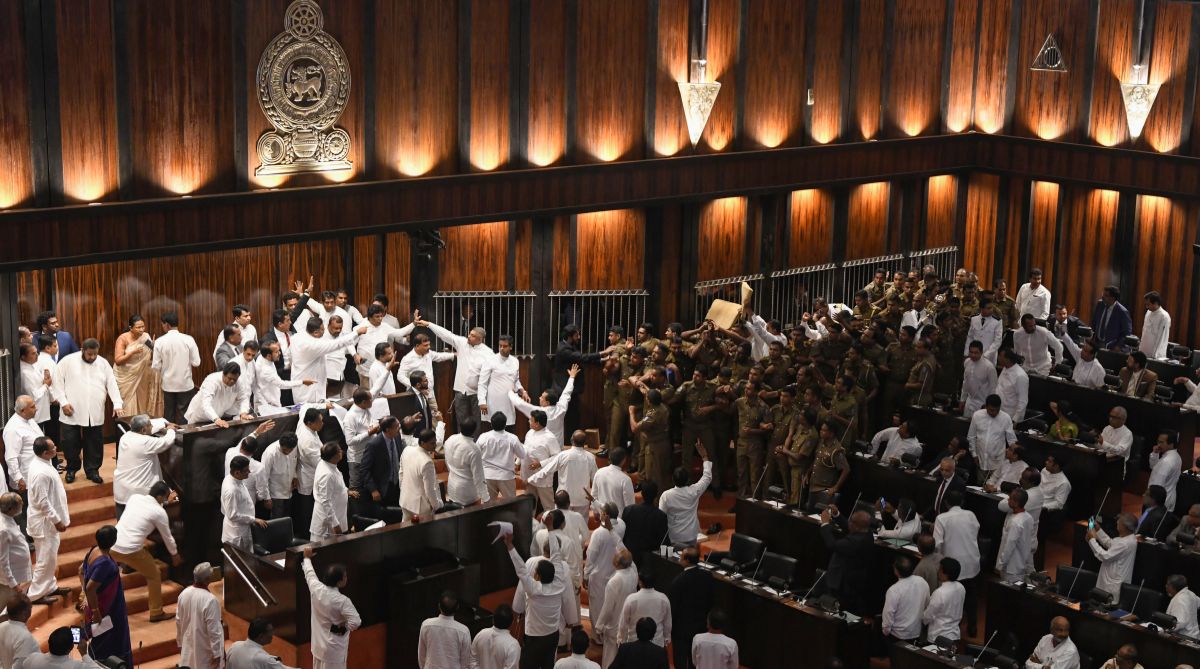The political crisis in Sri Lanka that began on 26 October when President Maithripala Sirisena appointed former President and Sinhala chauvinist Mahinda Rajapaksa as Prime Minister and sacked serving Prime Minister Ranil Wickremesinghe for which the President does not have the requisite power under the Constitution, had deepened by Friday and there seems to be no solution in sight.
Parliament was convened this week when a vote of confidence in Rajapaksa was defeated but he refused to step down. In the 225-member Sri Lanka Parliament, Wickremesinghe has the support of 122 against Sirisena-Rajapaksa combine having only 93 supporters. Sirisena’s attempt to dissolve Parliament was stayed by the Supreme Court.
Advertisement
A three-member Bench presided over by Chief Justice Nalin Perera, after two days of deliberations on 9 November ordered stay on dissolving Parliament till 7 December when a final ruling will be given. The attempt by Rajapaksa supporters to disrupt proceedings of the House only confirms that they do not have the numbers. Knowing his lack of support Rajapaksa walked out of the House before the vote was taken.
His supporters indulged in violence inside the parliamentary chamber sinking politics in Sri Lanka to a new low. Every decision taken by Sirisena in the last three weeks is against the spirit of the Constitution and the reforms agenda on which he was voted President in 2015. After losing the vote of confidence, it is untenable for Rajapaksa to continue as Prime Minister while Wickremesinghe, the legitimate Prime Minister, is firmly entrenched in office.
The youngest MP ever to enter Parliament in 1970, Rajapaksa touched the lowest point in his political career when he lost a trust vote for a third time on Friday. Rioting MPs carried away the ornate ceremonial chair of the Speaker and ripped microphone cables in an attempt to stall proceedings of Parliament.
Vijitha Herath of the JVP and two other MPs were injured in the melee. Unmindful of the hooliganism let loose by Rajapaksa supporters, Speaker Karu Jayasuriya, who was escorted by police for the first time inside Parliament, began proceedings. Chairs were flung at each other. Chilli powder was sprayed in the House.
Amidst this pandemonium, MPs who moved the no-confidence motion against Rajapaksa remained calm. Prime Minister Wickremesinghe called for an end to this anarchy and instability and offered to work with President Sirisena in spite of his having triggered the chain of unconstitutional events of the last three weeks.
With the House scheduled to reconvene on Monday, Sirisena is faced with the choice of reappointing Wickremesinghe, which he firmly ruled out, or live with the festering chaos till a new election takes place. No Parliament can perform its legitimate role when its own members are indulging in violence inside the chamber.









